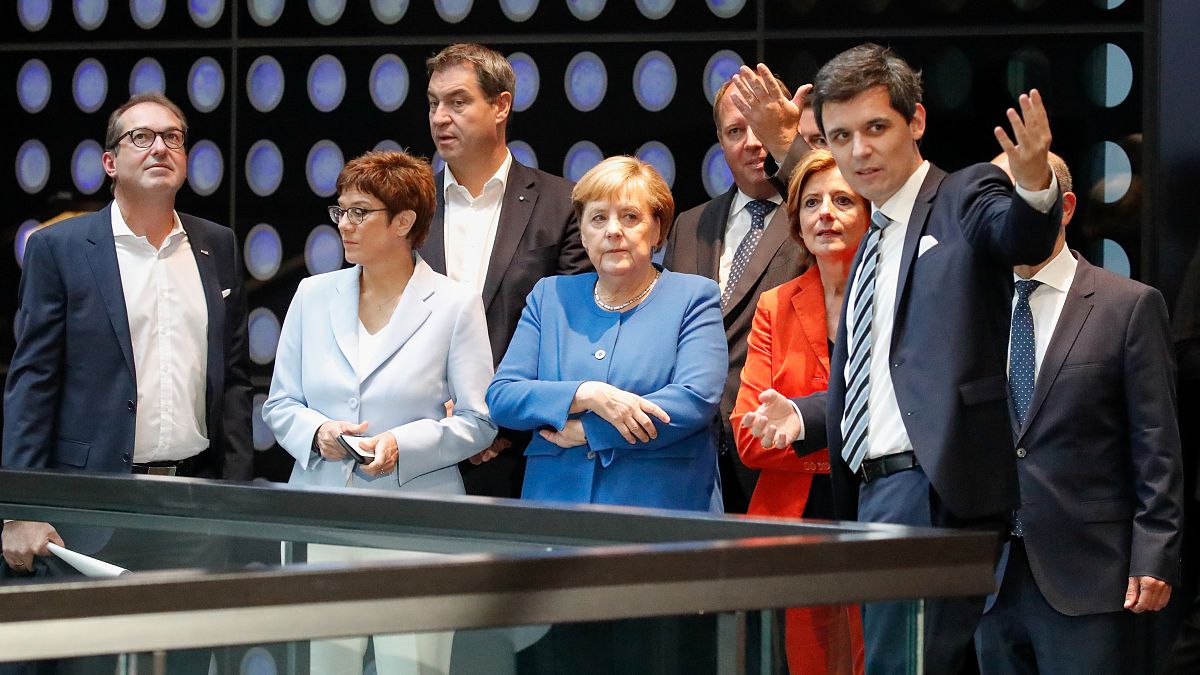A new domestic carbon pricing scheme, more incentives for buying electric cars, and lower railway passes are part of the new package.
Germany's governing parties agreed on a new climate protection deal worth more than €50 billion through until 2023.
But it will be budget neutral — meaning Berlin will not take on new debt to finance the package.
It aims to protect the climate and restore Germany's green credentials but has received a lot of criticism from green groups who hoped changes would be more drastic.
The package aims to change consumers' behaviour and reduce emissions of carbon dioxide in their daily lives.
It includes a new price for CO2 emissions, bigger incentives for buying electric cars, higher road tolls for trucks from 2023, surcharges on domestic flights and plans to give more money to rail operator Deutsche Bahn.
Euronews breaks down the deal.
Changes to the carbon price
Germany will introduce a carbon price for transport and heating in buildings from 2021, starting at ten euros a tonne. It will double to €20 in 2022 and increase five euros a tonne each year to reach €35 in 2025.
This means that car drivers will have to pay a surcharge for gasoline and diesel of up to €0.12 per litre.
The proceeds from the new pricing system will be re-invested in climate protection or given back to citizens.
More incentives to go green
The deal also proposes more incentives for citizens to go green by reducing an existing surcharge from 2021, which consumers pay through their electricity bill to support the expansion of renewable energy sources such as solar and wind.
People living in rural areas without access to public transport to go to work will get a higher premium to cushion the effects of higher gasoline prices.
Germany will also extend car tax exemptions for electric car buyers until 2025 and raise cash incentives for investing in the vehicles.
With the purchase of more electric vehicles, comes investing in more power stations to charge them up. The government aims to make available over one million charging stations for e-cars by 2030.
Germany's state-owned Deutsche Bahn railway operator will receive additional capital of one billion euros per year until 2030 to improve their services.
The VAT on train tickets will also be reduced by 12% to make rail trips more affordable.
As for plane tickets, a surcharge will be added to them but the details of this still need to be hammered out.
Berlin wants to double the road toll for trucks starting from 2023 and increase the car tax for highly polluting vehicles from 2021.
Criticism from environmental groups
However environmental groups were not very happy with the plan, blaming a "lack of ambition" from Berlin.
"This mixture of despondency, postponement, and failure is not an acceptable result," said Christoph Heinrich of the World Wide Fund for Nature.
"Our government totally ignores the 1.5 degree Celsius target," tweeted the Fridays for Future movement in Germany.
Greens lawmaker Lisa Badum called the plan "a capitulation".
